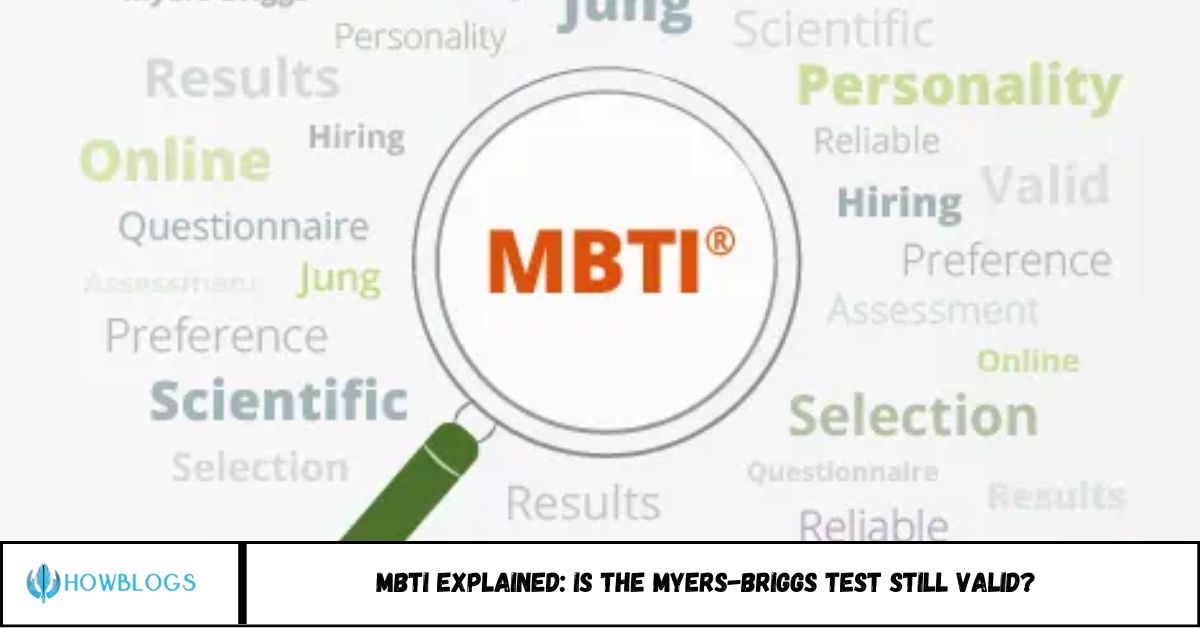Table of Contents
What Is MBTI: Is the Myers-Briggs Test Still Valid
The Myers-Briggs Type Indicator (MBTI) is one of the most well-known personality assessment tools worldwide. Designed to categorize people into 16 personality types, it’s widely used in career counseling, workplace dynamics, and self-discovery. But despite its popularity, MBTI faces ongoing criticism from psychologists and researchers. This article explores what MBTI is, how it works, its uses, limitations, and current scientific standing, helping you decide whether it’s still worth your time in 2025.
Can a Personality Test Define Who You Really Are?
Millions of people around the world have taken the Myers-Briggs Type Indicator (MBTI), and you’ve likely encountered your four-letter “type” at some point—maybe INTJ, ENFP, or ISFJ. Used in corporate hiring, team building, and even dating apps, MBTI is a popular tool to understand human behavior. But does it really measure personality accurately? Or is it just pseudoscience in a four-letter disguise?
Let’s explore what MBTI is, how it came to be, where it’s used today, and whether modern psychology still supports its validity.
What Is MBTI?
The Myers-Briggs Type Indicator is a self-report questionnaire designed to identify a person’s personality type, strengths, and preferences. It was developed in the 1940s by Isabel Briggs Myers and her mother, Katharine Cook Briggs, based on Carl Jung’s theory of psychological types.
MBTI is based on four dichotomies:
- Extraversion (E) vs. Introversion (I)
- Sensing (S) vs. Intuition (N)
- Thinking (T) vs. Feeling (F)
- Judging (J) vs. Perceiving (P)
These combinations form 16 personality types, like ISTJ, ENTP, or INFP.
How MBTI Works
The MBTI assessment includes a series of questions designed to evaluate how you:
- Focus your energy (externally or internally)
- Gather information (through facts or abstract patterns)
- Make decisions (logic or personal values)
- Interact with the world (structured or flexible)
Your answers are analyzed to assign one of the 16 types. The goal is to give you insight into how you think, work, and relate to others.
Why MBTI Is So Popular
Despite lacking strong scientific support, MBTI continues to be used because:
- It’s easy to understand and remember
- People enjoy being categorized into a “type”
- Organizations use it for hiring, leadership development, and communication training
- It encourages self-reflection
As of 2025, over 2 million people take the MBTI each year, according to the Myers-Briggs Company.
Is MBTI Scientifically Valid?
Here’s where things get controversial.
Criticisms of MBTI include:
- Low test-retest reliability: People often get different results when retaking the test weeks later.
- Lack of predictive power: It doesn’t predict job performance, relationship success, or leadership effectiveness.
- Oversimplification: Personality is complex and continuous—not binary as MBTI suggests.
A 2018 review published in Nature Human Behaviour found that MBTI lacks empirical support compared to more robust models like the Big Five Personality Traits (Openness, Conscientiousness, Extraversion, Agreeableness, Neuroticism).
MBTI vs. The Big Five: Which Is More Accurate?
| Feature | MBTI | Big Five |
|---|---|---|
| Scientific Validity | Low | High |
| Uses Categories? | Yes (16 types) | No (scores along 5 traits) |
| Test-Retest Reliability | Low to Moderate | High |
| Used in Psychology Research? | Rarely | Frequently |
Bottom line: MBTI may help with self-awareness, but the Big Five is more widely accepted in psychology.
Where MBTI Still Has Value
Despite its limitations, MBTI still offers:
- Common language for teams to discuss personality differences
- Starting point for self-reflection or coaching conversations
- A fun and engaging tool for understanding general preferences
It’s best used in low-stakes environments like team-building or personal development—not for hiring or diagnostics.
Frequently Asked Questions (FAQs)
1. Is MBTI based on science?
MBTI is based on Jungian theory, not modern psychological science. It lacks the empirical support of models like the Big Five.
2. Can MBTI predict job success?
No. Studies show MBTI doesn’t reliably predict job performance or career success.
3. Is MBTI better than the Big Five?
Not in terms of accuracy. The Big Five is more scientifically validated and widely accepted by psychologists.
4. Why do people still use MBTI?
It’s easy to understand, fun to take, and helps spark discussions about personality—even if it’s not fully scientific.
5. Can MBTI types change over time?
Yes. Many users get different results when retaking the test due to low reliability.
6. Should I use MBTI for hiring decisions?
No. MBTI was never designed for recruitment and may lead to biased or inaccurate hiring choices.
Conclusion
The Myers-Briggs Type Indicator remains popular for a reason—it’s accessible, easy to use, and helps people reflect on themselves. But if you’re looking for scientifically valid personality data, MBTI isn’t your best bet.
For personal curiosity or team development, it’s fine. But for serious psychological or business applications, consider alternatives like the Big Five or other validated assessments.

